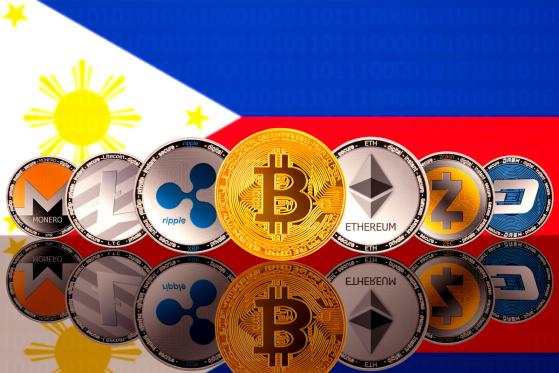The Philippines digital currency space is on a steady and healthy rise with cryptocurrency conversion nearing $40 million per month, data from the Bangko Sentral ng Pilipinas (BSP), the country's central bank showed, reports Business World.
BSP Deputy Governor Chuchi G. Fonacier said that conversion from digital currencies to the local currency averaged $36.74 million each month in the first quarter of this year citing data from two of the largest cryptocurrency exchange operators in the country during that period. The BSP used data reported by virtual currency (VC) exchanges Rebittance, Inc. and Betur, Inc. also known as Coins.ph, the first two cryptocurrency exchanges accredited by the BSP. The central bank later registered Bloom Solutions as a legitimate digital currency exchange.
Comparatively, the figure dropped from the $38.27 million monthly average in the last quarter of 2017 when Bitcoin prices neared $20,000. Still, the amount represents a sharp rise from the estimated average monthly cryptocurrency transactions to around $8.8 million from January to June last year.
The BSP implemented rules regulating the conversion of fiat currency to cryptocurrencies like Bitcoin and Ethereum starting February last year by imposing requirements for risk management and eliminating the risk against money laundering.
The country's monetary policy maker recognizes the benefits of cryptocurrencies, especially the convenience and speed the platform provides, as well as cheaper way to move or transfer money (value). But the nascent technology is also exposed to many forms of risks including money laundering, hacking threats, and other cybercrimes.
In December, Fonacier said that the BSP is working with the country’s market regulator, the Securities and Exchange Commission, to drafting a unified regulation on digital currencies like Bitcoin – when used as investments.
Previously, BSP deputy director, Melchor Plabasan expressed confidence the country’s market regulators could manage the risks presented by digital currencies. He stated then:
“[Bitcoin is] like any other monetized instrument [and even] an investment instrument. There are risks, but essentially it can be managed. If you want something that is fast, near real-time and convenient, then there's the benefit of using virtual currencies like Bitcoin,”
At the same time, the Anti-Money Laundering Council introduced several rules to manage the flow of dirty money using cryptocurrencies by tighter monitoring of transactions and requiring crypto exchanges to report any suspicious deals.
This article appeared first on Cryptovest
